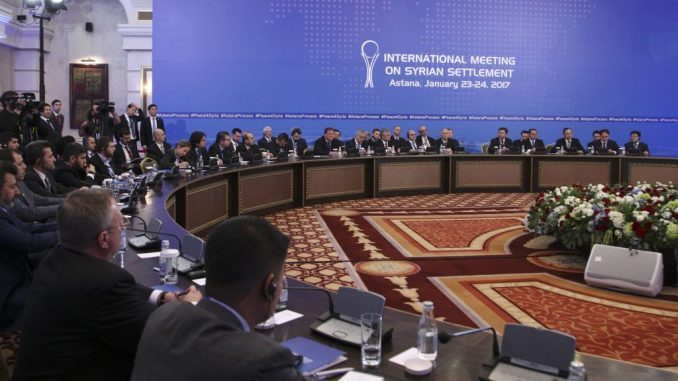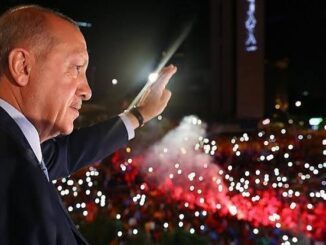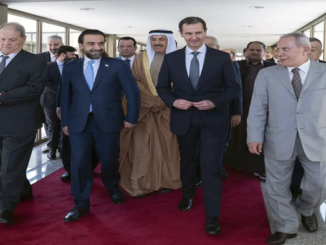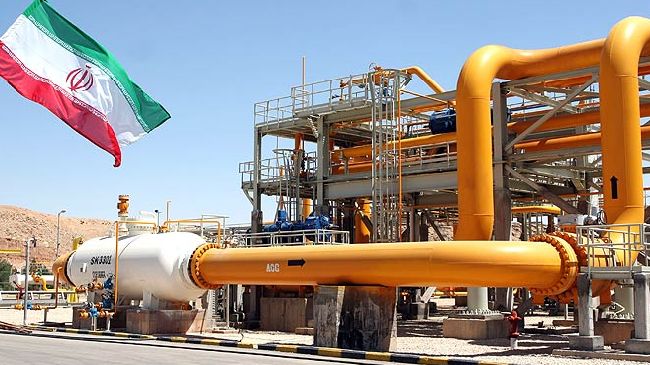
Russia, Turkey, and Iran released a joint statement at the end of the Syria peace talks in Astana, which didn’t bring the awaited results that were expected and didn’t end with a solid strategy to force the ceasefire on ground, according to analysts.
Russia said it has a new plan for Syria peace talks which can be achieved with powers that have a real effect on the Syrian ground after its forces backed Assad regime to achieve many victories against the opposition and tilted the tide of war in his favor.
Russia, Iran and Turkey said they were ready to help broker a Syria peace deal
Russian President Vladimir Putin said then that that Syrian opposition groups and the Syrian government had signed a number of documents including a ceasefire deal that will be guaranteed by Turkey and Russia.
The documents include a ceasefire agreement between the Syrian government and the opposition, measures to monitor the ceasefire deal and a statement on the readiness to start peace talks to settle the Syrian crisis, Putin said.
The ceasefire went into effect on December 29 but has been breached numerous times by Assad regime and the Iran-backed militias especially around Damascus city.
The opposition delegation said at first that they will not attend the talks in Astana due to the regime breaches, then said they will take part in the talks on January 23 and focus on finding ways to maintain the ceasefire and protect the civilians.
The first day ended with trading blames between both the regime and opposition over who threatens the ceasefire and political process, while they refused to have a face-to-face meeting.
The joint statement
The talks have ended with Russia, Turkey and Iran making a joint statement about the consequences of the talks and agreeing on a mechanism to support a delicate ceasefire, but it didn’t state how such a ceasefire can be maintained.
The full text of the statement:
The delegations of the Islamic Republic of Iran, the Russian Federation and the Republic of Turkey, in line with the Joint Statement of their Foreign Ministers made in Moscow, on December 20, 2016 and the UN Security Council resolution 2336;
Support launching the talks between the Government of the Syrian Arab Republic and the armed opposition groups in Astana on January 23-24, 2017;
Appreciate the participation in and facilitation of the above-mentioned talks by the UN Secretary-General Special Envoy on Syria;
Reaffirm their commitment to the sovereignty, independence, unity and territorial integrity of the Syrian Arab Republic as a multi-ethnic, multi-religious, non-sectarian and democratic State, as confirmed by the UN Security Council;
Express their conviction that there is no military solution to the Syrian conflict and that it can only be solved through a political process based on the implementation of the UN Security Council resolution 2254 in its entirety;
Will seek, through concrete steps and using their influence over the parties, consolidation of the ceasefire regime established pursuant to the arrangements signed on December 29, 2016 and supported by the UN Security Council resolution 2336 (2016), contribution to minimizing violations, reducing violence, building confidence, ensuring unhindered humanitarian access swiftly and smoothly in line with the UN Security Council resolution 2165 (2014) and protection and free movement of civilians in Syria;
Decide to establish a trilateral mechanism to observe and ensure full compliance with the ceasefire, prevent any provocations and determine all modalities of the ceasefire;
Reiterate their determination to fight jointly against ISIL/DAESH and Al-Nusra and to separate from them armed opposition groups;
Express their conviction that there is an urgent necessity to step up efforts to jumpstart the negotiation process in accordance with the UN Security Council resolution 2254;
Emphasize that the International Meeting on Syria in Astana is an effective platform for a direct dialogue between the government and the opposition as required by the UN Security Council resolution 2254;
Support the willingness of the armed opposition groups to participate in the next round of negotiations to be held between the government and the opposition under the UN auspices in Geneva as of February 8, 2017;
Urge all members of the international community to support the political process with a view to swiftly implementing all steps agreed on the UN Security Council resolution 2254;
Decide to actively cooperate on the Astana platform on specific issues of the UN-facilitated Syrian-led and Syrian-owned political process so as to contribute to global efforts to implement the UN Security Council resolution 2254;
Express gratitude to the President of the Republic of Kazakhstan, His Excellency Nursultan Nazarbayev, and to the Kazakh side in general, for hosting the International Meeting on Syria in Astana.



